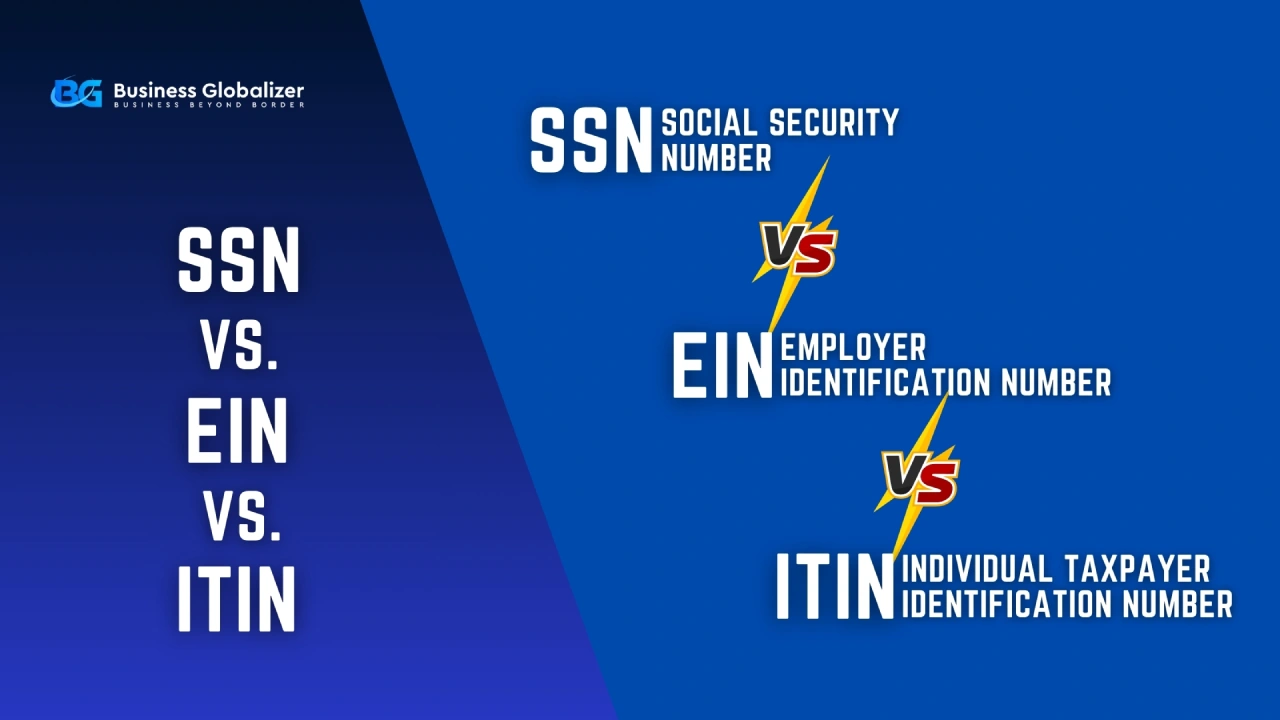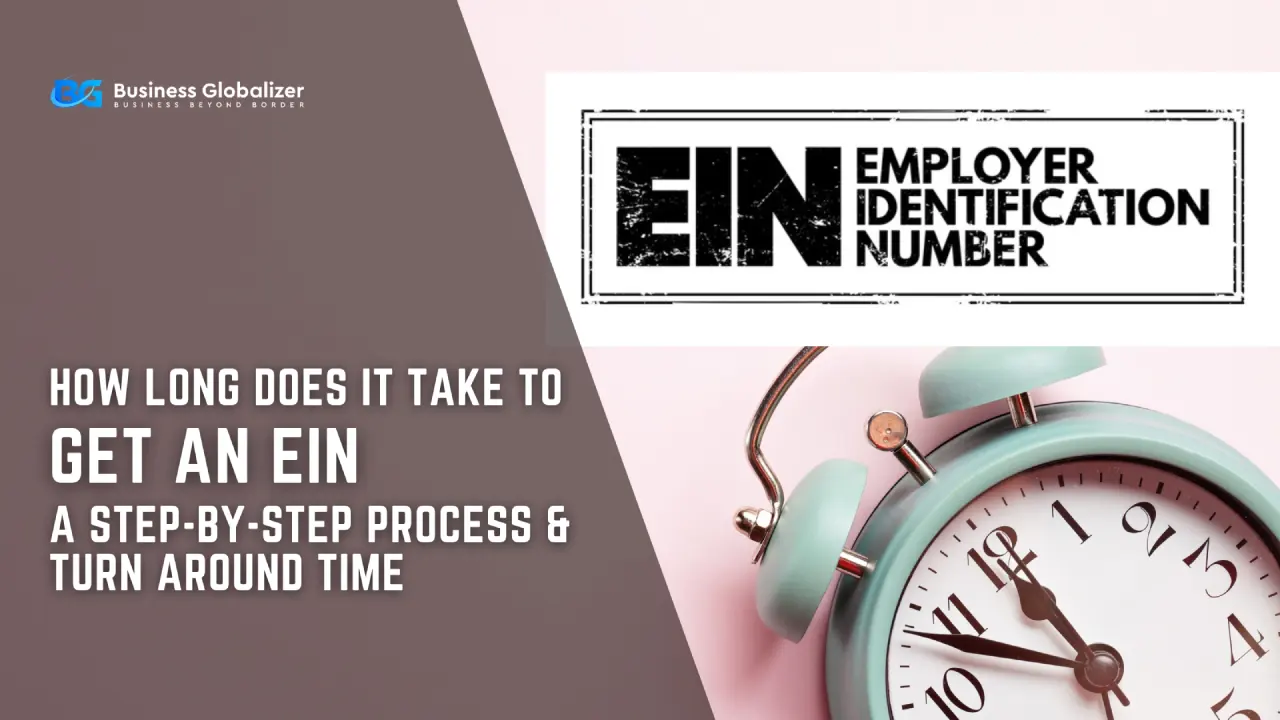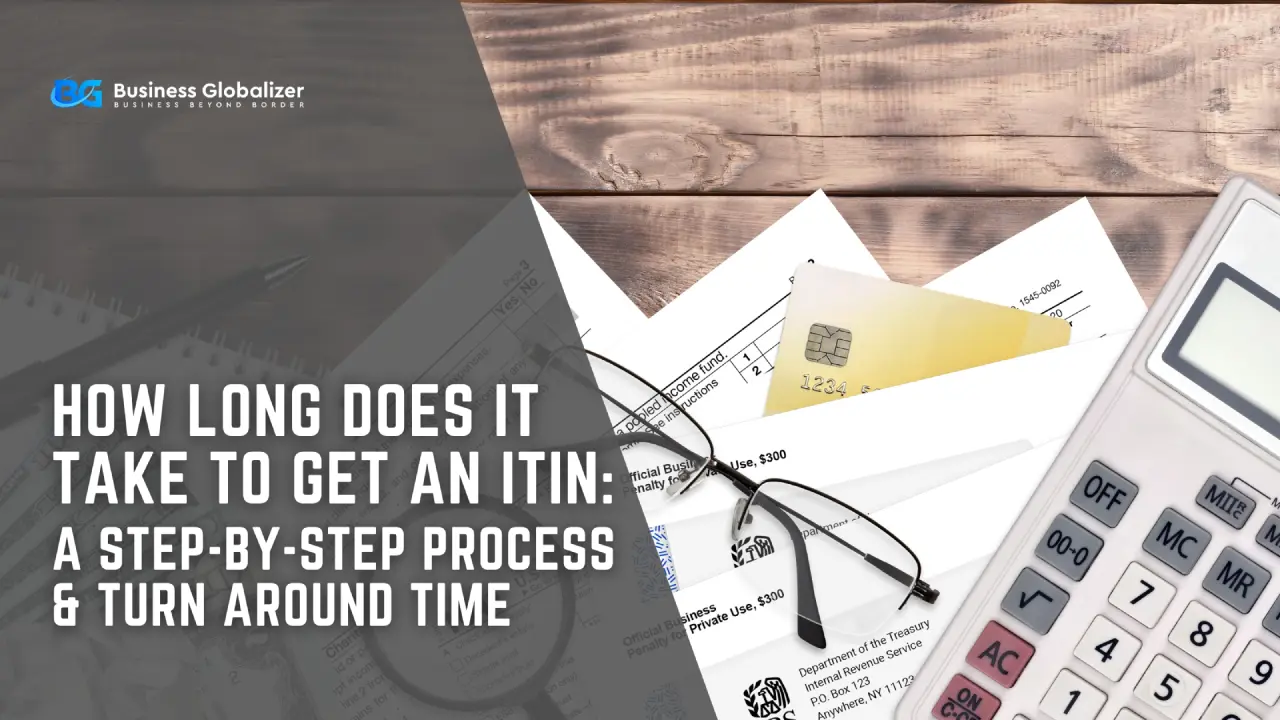If you are an entrepreneur or aspiring one, you’ll likely encounter the three important U. S. identification numbers:
- SSN
- EIN
- ITIN
However, an unavoidable question arises: “Which one do I need?”
Now, assuming you are wondering what SSN, EIN, or ITIN means; don’t worry! You are not alone. Read on as we take a look at these vital markers and explain how to tell which one is suitable for you and your company and if you qualify for the category.
This blog will help you see how identification numbers compare. To better understand SSNs, EINs, and ITINs and to learn when to apply for each of them.
What Is an SSN?
We briefly explained SSN also known as Social Security Number for you to understand. Let’s delve into this a little further.
A Social Security Number is a number assigned to United States citizens and residents so that the government can keep track of their income and calculate their payments accordingly.
SSNs were introduced as a part of The New Deal in 1936 to aid citizens receive retirement and disability benefits. Originally intended to keep a record of how much an individual earned and to collect benefits, SSNs now also serve to identify people for taxation, calculate credit scores, and so on.
When you need to borrow money, open a bank account, receive assistance from the government, or purchase goods over a certain price, you are requested to provide them with your SSN.
What Is an EIN?
Now, let’s talk about another important identification number: EIN. That is also known as Employer Identification Number.
An Employer Identification Number (EIN) is a nine-digit number identified as a Tax I.D. or Federal Tax Identification Number (FTIN) issued by the Internal Revenue Service (IRS). It is socially roughly equivalent to the social security number. Known as the Web EDI Tax folder (WET) it is employed by the Internal Revenue Service (IRS) to monitor business tax returns and payments.
Thus, if you have a business venture or you are planning to hire employees necessary for your business, then you need to have an EIN for legitimacy purposes with the IRS. It will help in organizing things for tax purposes and also make the government to monitor your business accounts in order to facilitate taxation purposes.
What Is an ITIN?
The next topic in our discussion is an ITIN – an Individual Taxpayer Identification Number.
An Individual Tax Identification Number (ITIN) is a number issued by the United State Internal Revenue Service (IRS) which helps solely in the processing of tax returns.
It primarily provides the purposes of allowing those not eligible for an SSN to meet the requirements of the U. S. tax laws. Among the grantees are non-resident aliens, certain resident aliens, and dependants or spouses of US citizens or resident aliens who are required to file or be able to file for a US tax return.
ITIN does not confer the blessed individual with a work permit nor enables him or her to receive social security. This is simply because it is for the IRS to monitor that even those who might not be legally registered in the country should ensure that they comply with the U. S tax code through filing their taxes.
EIN vs. ITIN
If you’re starting a business but don’t qualify for a Social Security Number, you’ll likely need either an EIN or an ITIN. The key differences between EIN and ITIN? EIN is tied to businesses; ITIN is for individuals who need to pay taxes but aren’t eligible for SSNs.
ITIN vs. SSN
Both are personal tax ID numbers, but meant for very different people. SSN is for U.S. citizens and eligible residents. ITIN is for those who aren’t eligible for an SSN but still need to file taxes legally in the U.S. Want more on this topic? Check out our blog on ITIN vs. SSN.
EIN vs. SSN
EIN identifies your business. SSN identifies you. If you’re a sole proprietor, you might use your SSN, but as you scale, an EIN becomes a must for handling taxes, opening business bank accounts, or hiring employees. So the difference between EIN and SSN is quite clear, right?
SSN vs. EIN vs. ITIN
Now, let’s explore the key differences between SSN, EIN, and ITIN:
- Purpose: SSN is used for tracking earnings and benefits while indirect tax and employment data for a business contractor is either EIN or ITIN.
- Issuing Authority: To obtain an SSN, an individual must apply through the Social Security Administration, while to get an EIN, one has to apply through the Internal Revenue Service and get an ITIN, the applicant is also expected to apply through the IRS.
- Eligibility: Individuals who are eligible for SSNs can receive the unique eight-digit number that becomes their identification marker in the United States.
- Usage: These numbers are essential to identify individuals’ identity and for the representation of individuals for tax-reporting purposes who have no SSN.
SSN vs. EIN vs. ITIN Comparison Table
| Aspect | SSN | EIN | ITIN |
|---|---|---|---|
| Purpose | Personal identification and tracking earnings/benefits. | Business identification, tax filing, and employee hiring | Tax reporting for individuals without SSNs |
| Issuing Authority | Social Security Administration | Internal Revenue Service (IRS) | Internal Revenue Service (IRS) |
| Eligibility | U.S. citizens and eligible individuals | Businesses | Individuals without SSNs and with U.S. tax obligations |
| Usage | Personal identification | Business identification | Tax reporting and compliance |

With this, we complete the blog on the topic “SSN, EIN, or ITIN”.
This is just a basic comparison of SSN, EIN, and ITIN. If you are confused about the differences or they are too complex for you to understand, there is no need to panic: each of the comparisons is discussed separately in our blog posts. See our in-depth studies in ‘SSN vs. EIN,’ ITIN vs. SSN,’ and “EIN vs. ITIN” for more clarification.
FAQs of SSN, EIN, or ITIN Comparison
What is the new deal?
Answer: The New Deal was a series of projects started by Franklin D. Roosevelt in the early 1930s to help the United States get out of the Great Depression. It aimed to enhance the economy; reduce unemployment rates; provide welfare to the needy; and increase confidence in the government’s ability to cater to its citizens.
For an LLC, should I use an EIN or SSN?
Answer: You may be required to pay tax for your LLC using your EIN or SSN depending on your type of business entity. Multi-member LLCs that are filing taxes need to use an EIN. Social security numbers are accepted by sole proprietorships and LLCs with one member. One can also consult an expert about this.
For taxes, can I use my EIN instead of my SSN?
Answer: Yes, for tax purposes, if you are operating as a business entity you would use your Employer Identification Number (EIN) instead of your Social Security Number (SSN). Your EIN acts as a unique number used when you report your business income, file taxes, or meet other tax requirements.
Can individuals receive an EIN, or are they limited to businesses?
Answer: EIN is only for business. People can get an EIN by creating a legal structure such as an LLC or Corporation.
If I have an EIN, do I still need an SSN?
Answer: It is true that employees will still require SSN even though the firm may have received an EIN. SSN serves for personal identification purposes while EIN is used for federal tax identification and related obligations.
Final Words
And here ends our blog on SSN, EIN, or ITIN. It is important to understand these differences to work within the tax system of the United States. SSNs are for individuals; EINs are for businesses; and ITINs are for foreign non-citizens who do not have SSNs but pay U. S. taxes. They serve different functions that facilitate effective tax filing and adherence.






